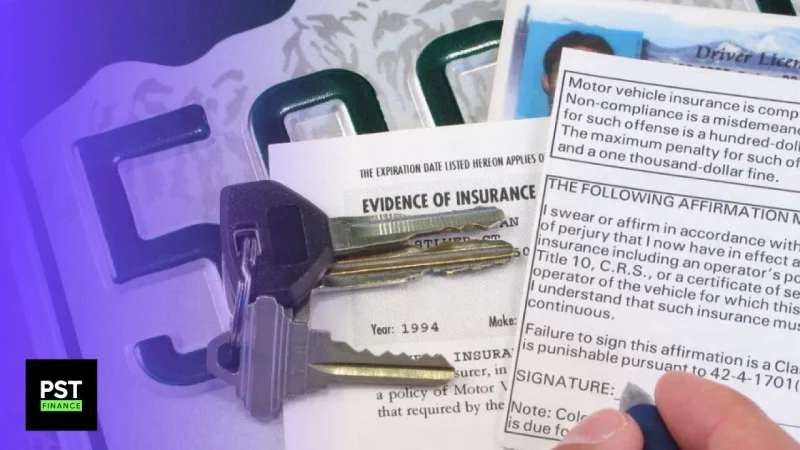If you have a business, or are a self-employed individual or a freelancer, you probably rely on your vehicle to get you from client to client, meeting to meeting, and job to job. Of course, this means that you’ve probably been advised many times about getting a business vehicle write off, which means that you could get tax benefits if you write off your car for business purposes.
While this sounds extremely appealing, you need to take a closer look at it to see if it’s really worth it. Most of the time, a business vehicle write off may not be the best thing to do for a variety of reasons.
Benefits of a Business Vehicle Write Off
The benefits of getting a business vehicle write off is that when you use a vehicle for business, whether it’s for an actual business you have or to go from somewhere to another as a freelancer, the IRS allows you to write off the costs of owning that vehicle. For example, you can write off the costs of depreciation, repairs, gas, and basically everything else you pay to keep your vehicle running and get tax benefits. This is one way of writing off your vehicle’s costs, and it’s called the actual method.
As for the second method, which is called the standard method, it allows you to write off the mileage that you accumulate for that vehicle, and you can calculate that deduction by multiplying the miles driven for your work by the standard mileage rate, which was increased to 67 cents per mile in 2024, compared to 65.5 cents per mile in 2023.
Disadvantages of a Business Vehicle Write Off
Getting a business vehicle write off might be a good idea for some people because it offers a lot of benefits, but there are disadvantages to doing it, and some of them aren’t so obvious.
Your Business Needs to be Profitable
First of all, people who don’t make enough business profit may not need to write off their vehicle. It’s common knowledge that tax deductions help you lower your taxable income, but tax deductions like writing off your vehicle can only become beneficial if they can actually lower your business income. Which means, if your business has low income, the tax deductions are likely going to be very small, especially if your business isn’t making a lot of profit.
If you’re still confused, here’s an example for you. Let’s say your business brings you $40,000 in income, but you have $50,000 in expenses, leaving you with a $10,000 loss. Now, if you decide to write off $5,000 in vehicle costs, these vehicle expenses will just be added to the loss, so your loss after the deduction will be $15,000, meaning that the deduction won’t offset any income you make. In other words, you’d be adding to your loss and not getting any tax benefits at the same time.
Instead, you could just carry forward your business losses into the future and use these losses to offset any income in the future to reduce your taxes. On the other hand, if your business is making profit, then the effect of writing off your vehicle could still be minimal, and that depends on how much that profit is and your tax bracket.
Using Your Vehicle for Something Other Than Business
If your vehicle is both for your personal use and business use, then you might not need to write off its costs. A lot of people, especially those using their vehicle to do freelance work, don’t know that if you’re using the actual method of writing off your vehicle, you can only deduct the percentage of expenses related to business use. For example, let’s say you use your vehicle for work about 30% of the time, and the other 70% is just your own personal use, then you can only write off the 30% work-related expenses.
This becomes a big problem when using Section 179 or bonus depreciation to write off the purchase price of that vehicle in year one and if the vehicle weighs more than 6,000 pounds. A Section 179 expense is a business asset that can be written off for tax purposes right away rather than being depreciated over time. On the other hand, bonus depreciation is when businesses get to write off up to 80% of the purchase price of an asset, or a vehicle in this case, in year one, and then depreciate the remaining 20% over the course of several years. Recently, these two methods became very popular methods of writing off your vehicle, and for a good reason.
If you use Section 179, and/or bonus depreciation on a vehicle that weighs more than 6,000 pounds, the IRS allows you to write off nearly all of the vehicle’s purchase price in year one, and that’s even if you bought that vehicle on the very last day of the year. This is why so many business owners own G-Wagons (OTCMKTS: MBGAF) and Tesla Model X’s (NASDAQ: TSLA), as they have a gross weight rating of over 6,000 pounds, making them eligible for Section 179 or a bonus depreciation deduction.
But, what a lot of people don’t know is that in order to use these tax deductions, you have to use your vehicle for business purposes at least 50% of the time, and if you don’t, you will have to pay a massive price. In fact, if you drop below 50% in the first five years of using these tax deductions, you’ll have to pay back the IRS for all the depreciation costs you deducted on that vehicle before. This is called depreciation recapture, and it’s something that’s rarely talked about when discussing vehicle write-offs.
Picture this: you buy a vehicle for $100,000, you write off that full cost in the first year, and you end up getting hit by a whopping $100,000 in extra taxable income when you file your taxes, all because of depreciation recapture. This could literally ruin a small business, so it’s important to account for that situation or any tax situation with a tax professional in order to avoid paying unexpected penalties.
The Period You Need to Keep the Vehicle for
Now, for the third reason why you shouldn’t get a business vehicle write off, you should ask yourself: “Do I plan on keeping this vehicle for a long time?” If your answer to this question is no, then you should know that people who won’t keep the vehicle for long shouldn’t write off their vehicle.
Let’s say that you bought a new vehicle for your business that’s worth $70,000, then you used Section 179 and/or bonus depreciation to write off at least 80% of that cost, so you ended up saving $56,000 in taxable income savings. But, there’s one crucial problem here. In your books, that vehicle would now be worth $0, because of the depreciation you took. If you decide to sell that vehicle later, let’s say, for $40,000, some of the money you receive may be considered depreciation recapture by the IRS.
This means that the money will be subject to regular income tax because that vehicle is worth $0 on your company’s records, or your purchase price minus the depreciation that you already took. Therefore, any money that you make when you decide to sell the vehicle is above the cost basis of the vehicle, and this makes the IRS consider it ordinary income.
If you don’t want to worry about depreciation recapture, then you can use the straight-line depreciation method to depreciate your vehicle, which spreads the cost of an asset evenly over the time it will be used. But, if you still want to use Section 179 and/or bonus depreciation, you just need to be careful and keep the drawbacks in your mind.
Knowing the IRS’ Rules
For the last reason why you shouldn’t write off your vehicle, you could say that if you don’t know the IRS’ rules and how they work, never write off your vehicle. This is because one of the most important rules of the IRS is that the expenses that you deduct must be ordinary and necessary. And the problem is, what you think is ordinary and necessary expenses for your business might not be the same as what the IRS thinks.
For the IRS, expenses are considered ordinary when they are common and accepted in the industry your business operates in, and necessary when they are helpful for the operation of your business. For example, you might consider a certain new software system necessary for your business, but if that’s not the case with other players in the industry, the IRS might not allow you to deduct its costs on your taxes.
This is where a lot of business owners get into trouble, as most advocate for buying expensive vehicles over 6,000 pounds to take bigger depreciation tax benefits. But, you have to stop and think about if it’s ordinary or necessary for a business that isn’t even making $100,000 in profit to buy a business vehicle that costs more than that.
The Bottom Line
With all of this in mind, writing off your vehicle using any method from the methods we talked about can be a great way to save on your taxes, but you need to consider the pros and cons and make sure if this decision is actually a good move for your business.
Disclaimer
Please visit and read our disclaimer here.









